- Home
- Seanan McGuire
Magic for Nothing Page 5
Magic for Nothing Read online
Page 5
(My sister has a tendency to throw herself off buildings for fun. Apparently, she thinks gravity doesn’t apply to pretty people. I don’t mind falling—it can be pretty cool under the right circumstances—but falling without a net is not my idea of a good time.)
“The fact that you supposedly went to college for four years will explain why you’re a little rusty, and your core skills should still be good enough that you can fake anything you don’t feel totally up for. Artie’s going to set up a new ID for you, and run it through Uncle Al for any bells or whistles that you need.”
“Nobody does a fake ID like Big Al,” I said.
“That’s right,” said Mom, missing the humor entirely. “It should be ready by the end of the week. We’ll fly you to Toronto, have you take the train to New York, and fly you from there to London. That way, there’s no clear connection between your new identity and the West Coast, much less Portland.”
“You’ve thought of everything,” I said. We had no idea what kind of monitoring capacity the Covenant had. We as a family and an extended network don’t have the ability to put a trace on a passport—we can watch the airports, we can monitor known crossings, but we can’t tell exactly when someone entered or left the country. We had to assume the Covenant could. We had to avoid drawing obvious lines.
“Yes. Everything.” My mother closed the distance between us with remarkable speed. My father was right behind her. They engulfed me in their arms, giving me no time to dodge or backpedal.
“Everything,” she whispered, and I realized two things. One, that she was crying, and two, that they had really tried to find another option. They had searched. Because there was every chance they were sending me to my death for the sake of the rest of my family, and for them to be willing to do that, they had to be absolutely sure there wasn’t any other way. What the hell was I getting myself into?
“I’m going to go pack,” I muttered, and ducked out of their embrace, fleeing up the stairs.
As I should probably have expected, Mary was sitting on my bed when I got to my room. “We need to talk,” she said, without preamble.
“Nope,” I said, heading for the dresser. “I need to pack. You can help, if you want. But no talking.”
“Annie . . .”
“You’re still talking.”
“Annie, I can’t come to England with you.”
I stopped in the act of opening the top drawer, trying not to show how much that simple statement rattled. Then I shrugged, and said, “So? Neither is anyone else. Is the Covenant a good place for granny panties, do you think?”
“Annie, look at me.”
I turned to look at her. “What? I have to go. You know I have to go.”
“I know you’re still setting things on fire. I know you can’t control your pyrokinesis. I know it took your great-grandfather years to get his magic to do what he told it. You’re going to get caught, and you’re going to get hurt.”
“I can handle myself.” I rolled my shoulders in a shrug. “Trust me, okay? I know what I’m doing.”
“I don’t think you do. Annie—”
“You can’t tell them!” I paused, surprised by the vehemence in my own voice. Then I sighed. “Please. You can’t tell them. They need me to do this. They never need me to do anything. I’m the backup kid. If I’m ever going to prove myself . . . please. Don’t blow my cover.” I didn’t want to go. I didn’t want anyone else to go in my place.
Brains are complicated sometimes.
Mary looked at me gravely. Finally, she echoed my sigh with one of her own and stood, walking over to offer me her hands. I took them.
“I’ve been this family’s babysitter for more than fifty years,” she said. “You’re the youngest of your generation, and no one’s been making me new kids to watch lately. I’m going to be a little over-attentive.”
“I know,” I said. “But you have to let me grow up sometime.”
“Just promise me you’ll run if you have to.”
I nodded. “I will. I don’t want to join you in the ghost world yet.”
Mary smiled. “You couldn’t handle the ghost world.”
“Damn straight,” I said, and she hugged me, and if she noticed that I was shaking, she didn’t say a word.
Four
“You can’t go home again. Especially not if you’ve already burned it to the ground.”
—Enid Healy
A nameless café somewhere in Manhattan, nine days, a cross-continental flight, a really long train ride, two taxis, a confusing subway trip, and a cup of coffee later
THE CAFÉ PROBABLY WASN’T NAMELESS, but as the owners hadn’t bothered to put a sign outside and the counter was staffed entirely by unsmiling, bored-looking hipsters with lip piercings and multiple tattoos, I wasn’t going to push my luck by asking what it was called. I was already pushing my luck by being there, comparatively uncool as I am. Why, I didn’t have a single tattoo! The only things I have pierced are my ears, and I was only able to get away with that because it’s so socially standard that unpierced ears are almost more visible.
My parents raised us to be nonconformists who always look like we just ran away from church camp. Thanks, Mom and Dad. Thanks loads.
New Yorkers like to say they have the best public transit system in the world. I think this is because they’re all high off whatever weird subterranean fumes are blowing around in those damn tunnels. I’d departed Grand Central Station with a series of careful directions written on an index card, and had promptly gotten totally turned around in a maze of complicated train routes that bore no resemblance whatsoever to anything my poor little Portland brain had ever encountered.
(Yes, yes, I’m sure they make perfect sense to the people who navigate them on a daily basis, but for me? The most complex public transit system I’d ever dealt with was the bus. Which does not run underground, or according to a system of “uptown” and “downtown” that assumes a degree of local knowledge I would need to live locally for months, if not years, to acquire. People who say they live in the only place on Earth with a public transit system that makes sense are assholes.)
Eventually, I’d managed to get myself un-turned-around and had found the café from my notes, where I was now holed up in the very back, my luggage forming a barrier between me and the rest of the room, nursing a cup of black coffee and thinking longingly of my bed at home. It was a good bed. Just the right size, with a mattress new enough to have some bounce, and pillows I had beaten to that perfect stage of worn-in—
“You Melody?”
I looked up. One of the bored baristas (say that five times fast) was standing in front of me, a piece of paper in her hand. I haven’t been Melody in a long, long time. That ID got retired when I graduated high school.
“Yes,” I said, without hesitation.
“Great. I’m not your message service.” She thrust the paper at me and went stomping back to the bar.
I unfolded the note. CALL YOUR MOM, it read.
Since my mother knew—well, not exactly where I was, but essentially where I was, this was my signal to grab my things, throw a dollar on the table for whoever had to clean up after me, and slip out the front door. The sidewalk was empty. I’d expected that. I walked to the corner, turned left, and kept going, looking for an alley. When in doubt, always look for an alley.
When I found one, it was narrower than I’d expected, almost claustrophobic, lined with trash cans and rickety-looking fire escapes. I started walking down it anyway, and was halfway to the next street when someone whistled.
I stopped. I looked up.
Verity and Dominic were standing on a fire escape. Verity bounced onto her toes and started waving violently when she saw me, which was almost enough to make me reconsider my decision never to ride the subway again. Call me weird, but an overly enthusiastic sister is not something I want to deal wit
h after a trip involving planes, trains, and automobiles.
Dominic, unsmiling as usual, held up a can of Red Bull. I decided against heading back to the café. Instead, I gripped the handle of my suitcase a little tighter and stayed where I was, waiting for them to make their descent. Dominic came down the sensible way, using the ladder to reach the nearest line of trashcans, then hopping down, first onto their lids, finally to ground level.
Verity just jumped, like she was auditioning for a whitewashed live-action production of Sailor Moon and thought she was going to be a Soldier for Love and Justice. She hit the ground the same time Dominic did, and didn’t look like the fall had bothered her in the slightest. God, I hate her sometimes.
“Ta-da,” I said flatly. “Should we really risk being seen together?”
“The last Covenant field team left Manhattan after the Freakshow burned,” said Verity. “We have people watching for them to come back, but so far, there’s been no sign they plan to turn around. Sarah’s patch on the last field team really convinced them that there wasn’t much to deal with here. We probably shouldn’t go for a fun shopping spree through Midtown, but we’re okay for now.”
“I’ll trade you for your bag,” said Dominic, offering me the Red Bull.
I gave him my suitcase and had the tab popped on my energy drink before he finished adjusting his grip. Verity began to walk without another word. The bounce in her steps spoke of a nervousness she wasn’t admitting, and her eyes, as always, were turned high, scanning the rooftops and fire escapes for signs of movement.
Dominic was more grounded. He kept his eyes forward, and was more discreet in his surveillance. Verity lives and dies by the idea that the flashier something was, the less attention people would pay to the details . . . although not, I realized, today. She was wearing blue jeans and a gray hoodie with “I New York” blazoned across the front. It was the uniform of the tourist, and no one would look at her twice in this neighborhood, especially not with her uncombed hair and neutral makeup. She looked like an extra, rather than a star. Not normal for my stage-hungry sister. Not normal at all.
Dominic’s transformation was more subtle but almost as striking once I started looking for it. Instead of his cheesy leather duster, he was wearing a denim jacket over a button-up white shirt and had his hair slicked back with so much pomade that I could smell it three feet away. He looked like he was preparing to be an extra on Law & Order, and that, too, was a uniform of a sort. Neither of them was going to stand out in a crowd.
I wasn’t either. My hair was tied in a thick, frizzy braid, and I was wearing the Toronto version of Verity’s outfit: fuzzy boots, blue jeans, and a “Canada Proud” sweatshirt I’d purchased at the Vancouver airport with a credit card issued under the name “Marigold Price.” I’d cut the card up and dumped the pieces in five different trashcans before catching a bus back to Seattle and taking a plane from there to Toronto. Elsie would be calling to report the card stolen in three days, and the beat would go on. The beat always went on.
There was a cab waiting on the corner. More uncharacteristic behavior for Verity: she hates being cooped up, and she hates being cooped up with strangers even more. I was about to ask if she was feeling okay when the cab window rolled down to reveal a gorgeous, sour-faced blonde woman.
“Are you getting in?” she demanded. “I can’t take real fares when I’m stuck chauffeuring you around.”
“We paid your Nest-mother for your time,” said Verity wearily. Apparently, this was a conversation that had been going on for a while.
“She’ll give me less than half. I get to keep more than half of my usual fares. Get in.”
“I can pay,” I said, before Verity could object. “I have a travel budget.”
Verity gave me a sharp look. “She’s already been paid,” she said. “Get in the cab.”
I rolled my eyes but didn’t argue. The last thing I wanted to do was have a sister-fight on the sidewalk, especially when I only had eight hours in New York to shed this identity before I flew to London. I was going to arrive jet lagged and exhausted in a foreign country, which was just going to make this mission even more fun than it had looked on paper.
My suitcase went in the trunk; my backpack went on my lap. Dominic wound up in the front seat with our dragon driver, leaving me and Verity in the back. She waited until we’d pulled away from the curb to pull a glass-and-tourmaline charm from her pocket. She passed it up to the driver.
“Get us out of here,” she said.
The driver nodded and slipped the charm onto the rearview mirror. Then she hit the gas, accelerating faster than was strictly a good idea, given the traffic. The other drivers let us know they didn’t appreciate this approach by honking their horns and flashing their lights and, in several cases, sticking their hands out their windows and flipping us off with enough vigor to give themselves carpal tunnel. Our driver flipped them off right back and kept on driving.
“So, how was your flight?” asked Verity blithely, apparently unbothered by the fact that we were hurtling through traffic at unsafe speeds.
“The flight was fine. Long and cramped, but fine. The train was better. The subway was horrifying.” I tried to keep my eyes on the window without being too blatant about it. Streets and landmarks I’d only ever seen on television flashed by outside, temptingly close, impossibly far away. Even if I’d been here to play tourist, there wouldn’t have been time, and it wouldn’t have been safe.
Speaking of safety . . . I turned to Verity, frowning. “I thought somebody from the Freakshow was going to pick me up.”
“They’re a little preoccupied right now,” she said. “Arson tends to distract people.”
“As we said before, the Covenant currently has no presence in Manhattan,” said Dominic, in what was probably meant to be a soothing tone, but mostly made him sound like a condescending asshole. I considered telling him that. I decided it wouldn’t do much to help maintain the already tenuous current peace.
See? I can have self-control. I can.
“As long as the Covenant doesn’t have a field team on the ground, we can move around freely,” said Verity. “We’ve been sweeping the airports and major transit hubs for cameras and listening devices daily. Even if they had the sort of tech they could hide from us, they wouldn’t be able to hide it from the bogeymen or the mice. New York is as safe as it gets, for the moment. Besides, this way you can dump your old ID and change into your new one someplace private, where no one’s going to walk in on you.”
“It will be nice to henna my hair in a bathroom I don’t have to share,” I admitted.
“And I wanted to apologize.”
Okay. On a scale of one to “that’s never going to happen,” I’d been putting the chances of those words somewhere around “none.” I stared at her.
Verity grimaced and shrugged at the same time. “This is my fault. Well, technically, it’s the snake cult’s fault, but if I hadn’t been on that show, I wouldn’t have blown my cover, and we wouldn’t be in this mess. I’m sorry. I’d take your place if I could.”
“Well, you can’t,” I said. “You look too much like Grandma.”
“I know. That doesn’t mean you should have to be the one who pays for what I did. Look, Annie, I know we’re not the best of friends, but we’re still sisters, and I’m really, really sorry that this is landing on your shoulders. It shouldn’t be.”
Part of me—the part that’s been fighting with her since I was a little girl—wanted to snap and say that she was just jealous that I was going to have a big adventure and she wasn’t, for a change. The rest of me knew better. Verity looked like she meant every word she was saying, like my believing and forgiving her was the most important thing in the world.
And I felt like a jerk, but I couldn’t do it. There’s too much bad blood between us to fix with a “sorry” and a smile. “Yeah, well, it is,” I said. “I’l
l be fine. I got the same training you did. If you can go undercover on that silly dance show, I can handle going undercover with the scary para-military organization of murderers.”
“They’re not para-military,” said Dominic. “They are military. Do not make the mistake of thinking of them as anything short of an army. They’ll destroy you if they catch you. More importantly, they’ll unmake you, and take whatever they learn from you to use as a weapon against your family.”
“They can try,” I said flatly.
“And what will you do when they ask you to kill for them? Because they will. They train soldiers. They train assassins. Neither is useful if it can’t finish the job.”
“I’ll run,” I said.
“You can try,” he said, and his voice was as flat as mine had been, and his eyes were so very, very cold.
I shivered, turning to Verity. “He always this cheery?” I asked.
Verity shook her head. “Sometimes he’s downright dour.”
Dominic grumbled wordlessly.
He was wrong. I wouldn’t become a killer for them. I would lie. I would cheat, and steal, and pretend to be someone I wasn’t. But they were not going to change me. I could kill, if I had to, if the danger was great enough. That didn’t make me a killer.
It made me a survivor.
Our driver pulled up in front of a convenience store that looked like it was two steps away from either being shut down for health code violations or “accidentally” bursting into flame for the insurance money. I couldn’t imagine anyone shopping there if they had any other option—and since I could see two more healthier-looking convenience stores and a big chain pharmacy on the same block, there were definitely other options.
“Here we are,” said Verity cheerfully. “Hey, thanks, Pris.”
Our driver flipped her off, and didn’t help us get my stuff out of the trunk. The second the doors were shut she was gone, hitting the gas and peeling out so fast that Dominic jumped to avoid getting his foot run over. Rather than rushing to her husband’s side, Verity shook her head and said fondly, “Dragons. They never really change, and that’s amazing. Come on, this way.”

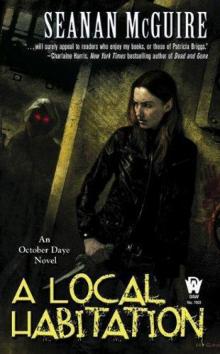 A Local Habitation
A Local Habitation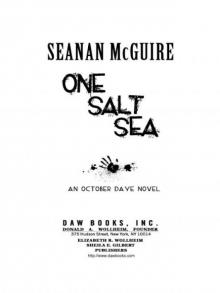 One Salt Sea
One Salt Sea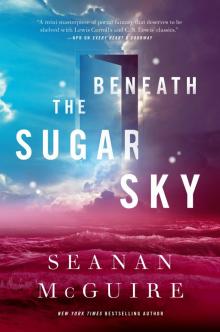 Beneath the Sugar Sky
Beneath the Sugar Sky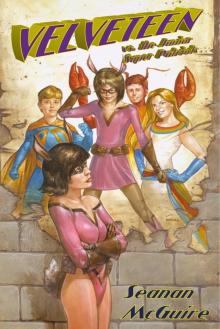 Velveteen vs. The Junior Super Patriots
Velveteen vs. The Junior Super Patriots The Girl in the Green Silk Gown
The Girl in the Green Silk Gown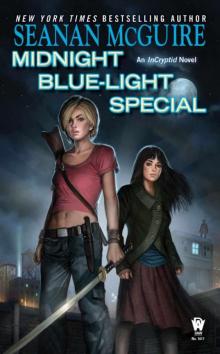 Midnight Blue-Light Special
Midnight Blue-Light Special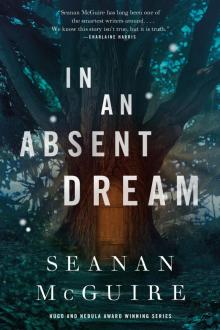 In an Absent Dream
In an Absent Dream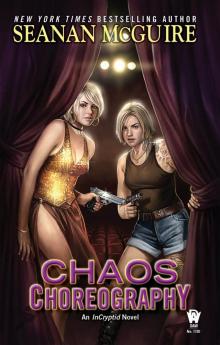 Chaos Choreography
Chaos Choreography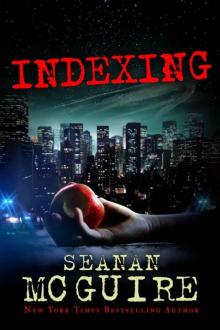 Indexing
Indexing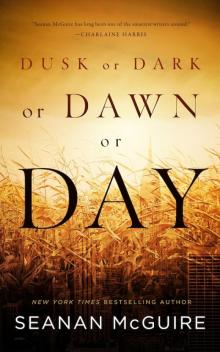 Dusk or Dark or Dawn or Day
Dusk or Dark or Dawn or Day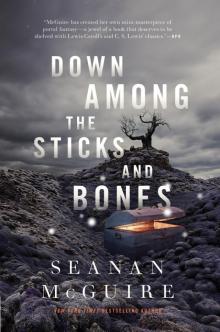 Down Among the Sticks and Bones
Down Among the Sticks and Bones The Razor's Edge
The Razor's Edge Midway Relics and Dying Breeds
Midway Relics and Dying Breeds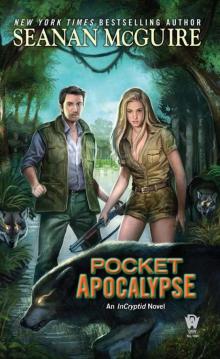 Pocket Apocalypse
Pocket Apocalypse The Brightest Fell
The Brightest Fell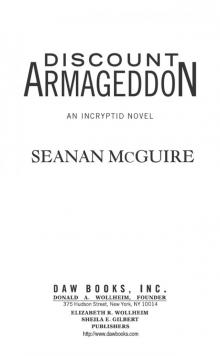 Discount Armageddon
Discount Armageddon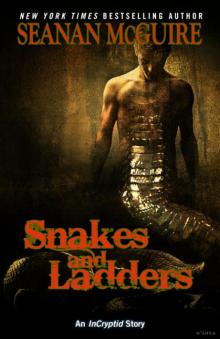 Snakes and Ladders
Snakes and Ladders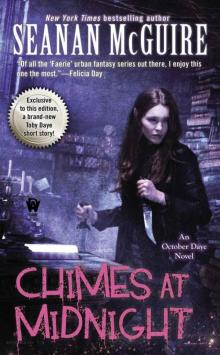 Chimes at Midnight
Chimes at Midnight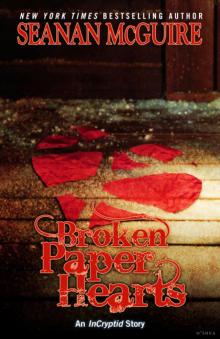 Broken Paper Hearts
Broken Paper Hearts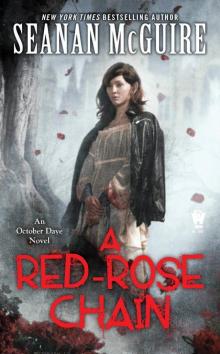 A Red-Rose Chain
A Red-Rose Chain Married in Green
Married in Green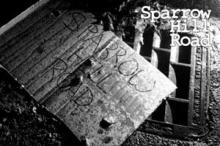 Sparrow Hill Road 2010 By Seanan
Sparrow Hill Road 2010 By Seanan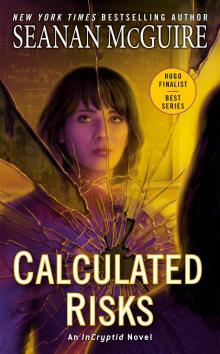 Calculated Risks
Calculated Risks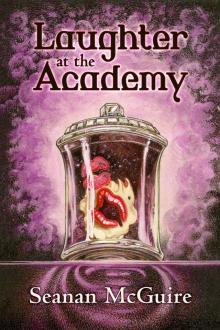 Laughter at the Academy
Laughter at the Academy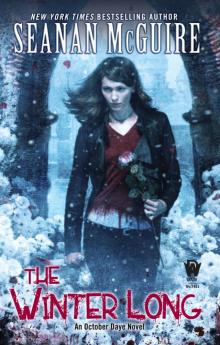 The Winter Long
The Winter Long We Both Go Down Together
We Both Go Down Together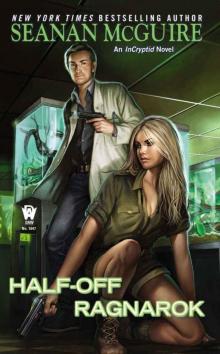 Half-Off Ragnarok
Half-Off Ragnarok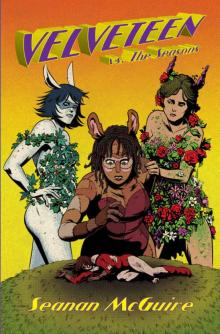 Velveteen vs. The Seasons
Velveteen vs. The Seasons Boneyard
Boneyard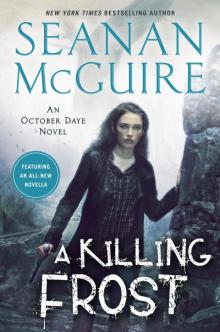 A Killing Frost
A Killing Frost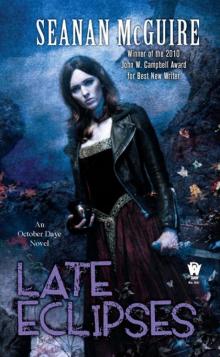 Late Eclipses
Late Eclipses Submerged
Submerged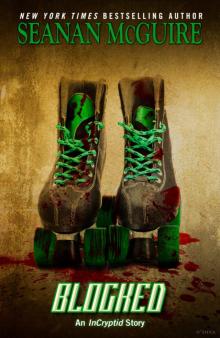 Blocked
Blocked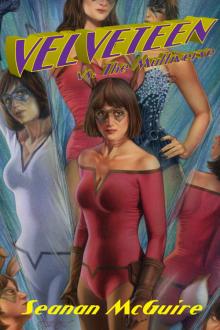 Velveteen vs. The Multiverse
Velveteen vs. The Multiverse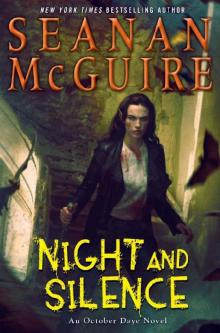 Night and Silence
Night and Silence The Unkindest Tide (October Daye)
The Unkindest Tide (October Daye)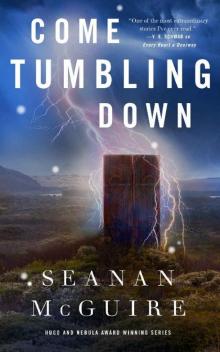 Come Tumbling Down (Wayward Children)
Come Tumbling Down (Wayward Children)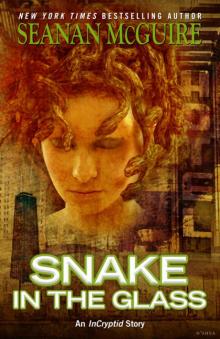 Snake in the Glass
Snake in the Glass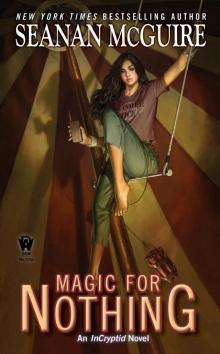 Magic for Nothing
Magic for Nothing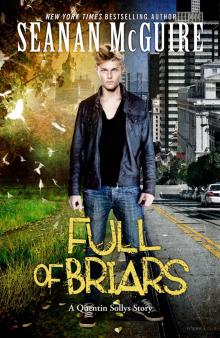 Full of Briars
Full of Briars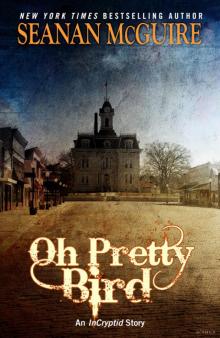 Oh Pretty Bird
Oh Pretty Bird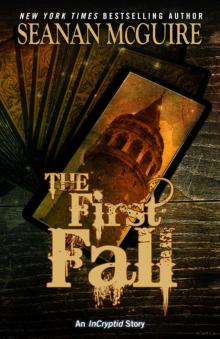 The First Fall
The First Fall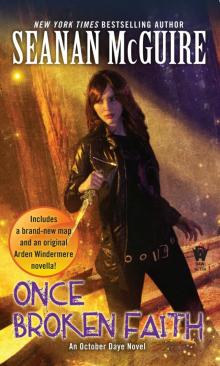 Once Broken Faith
Once Broken Faith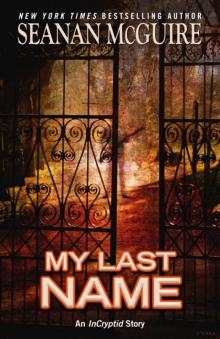 My Last Name
My Last Name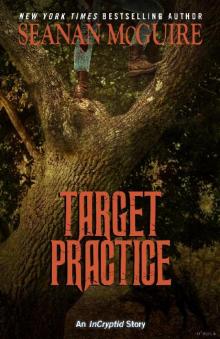 Target Practice
Target Practice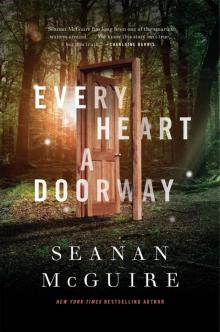 Wayward Children 01 - Every Heart a Doorway
Wayward Children 01 - Every Heart a Doorway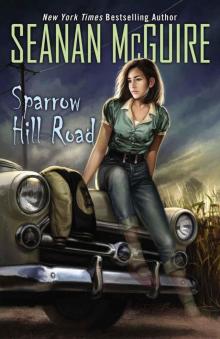 Sparrow Hill Road
Sparrow Hill Road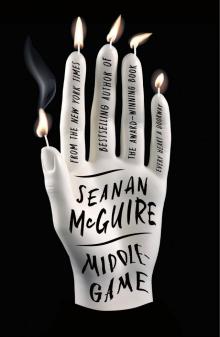 Middlegame
Middlegame Juice Like Wounds
Juice Like Wounds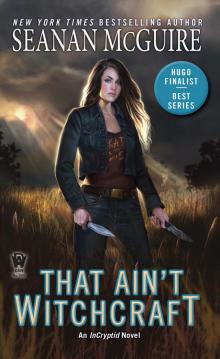 That Ain't Witchcraft
That Ain't Witchcraft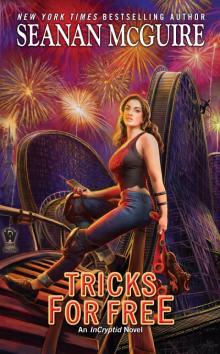 Tricks for Free
Tricks for Free Imaginary Numbers
Imaginary Numbers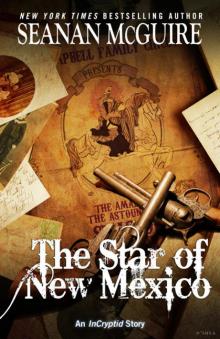 The Star of New Mexico
The Star of New Mexico Lay of the Land
Lay of the Land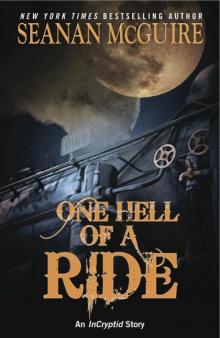 One Hell of a Ride
One Hell of a Ride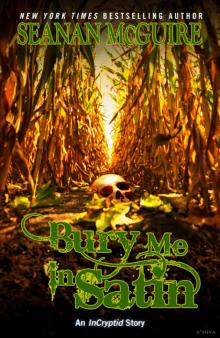 Bury Me in Satin
Bury Me in Satin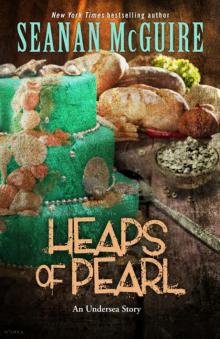 Heaps of Pearl
Heaps of Pearl Sweet Poison Wine
Sweet Poison Wine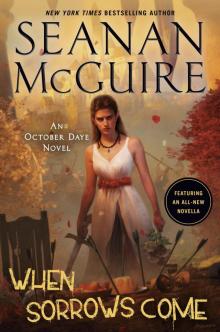 When Sorrows Come
When Sorrows Come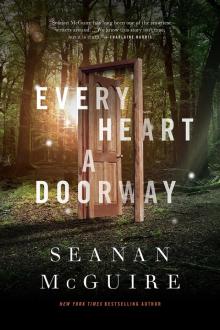 Every Heart a Doorway
Every Heart a Doorway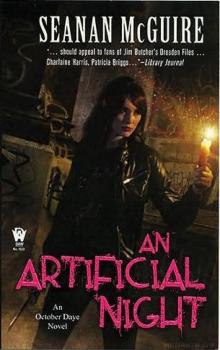 An Artificial Night - BK 3
An Artificial Night - BK 3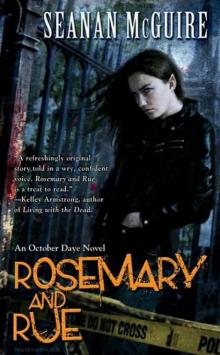 Rosemary and Rue
Rosemary and Rue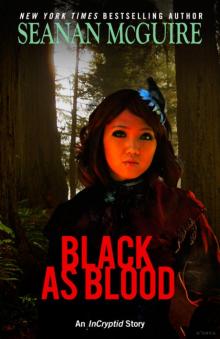 Black as Blood
Black as Blood Loch and Key
Loch and Key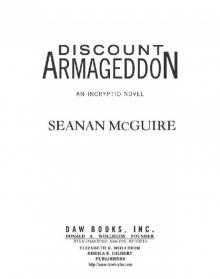 Discount Armageddon: An Incryptid Novel
Discount Armageddon: An Incryptid Novel The Unkindest Tide
The Unkindest Tide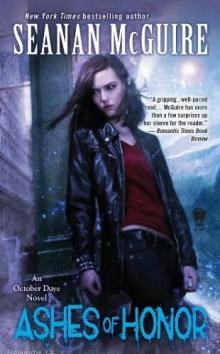 Ashes of Honor od-6
Ashes of Honor od-6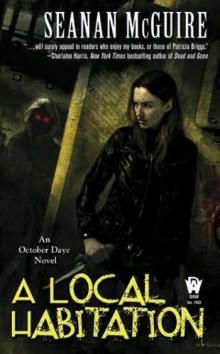 A Local Habitation od-2
A Local Habitation od-2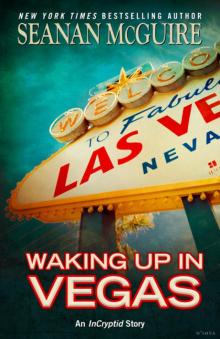 Waking Up in Vegas
Waking Up in Vegas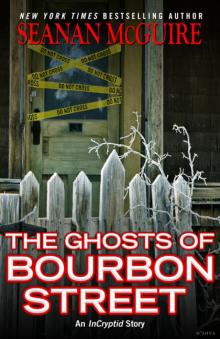 The Ghosts of Bourbon Street
The Ghosts of Bourbon Street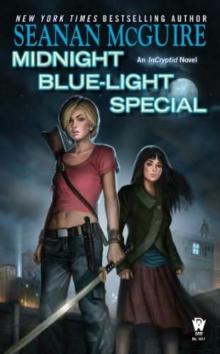 Midnight Blue-Light Special i-2
Midnight Blue-Light Special i-2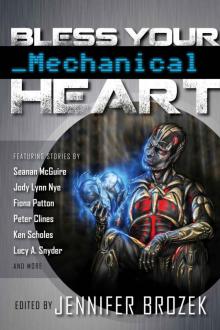 Bless Your Mechanical Heart
Bless Your Mechanical Heart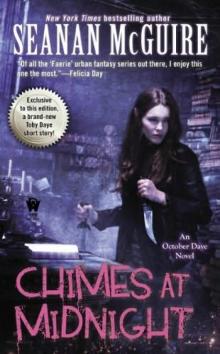 Chimes at Midnight od-7
Chimes at Midnight od-7 The Way Home
The Way Home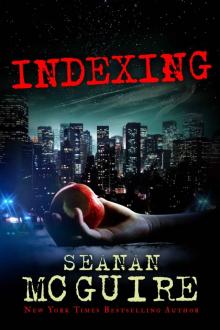 Indexing (Kindle Serial)
Indexing (Kindle Serial)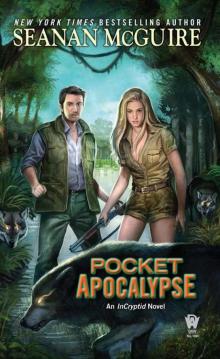 Pocket Apocalypse: InCryptid, Book Four
Pocket Apocalypse: InCryptid, Book Four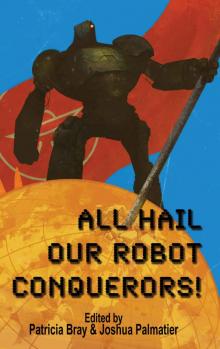 All Hail Our Robot Conquerors!
All Hail Our Robot Conquerors!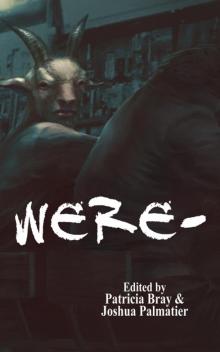 Were-
Were-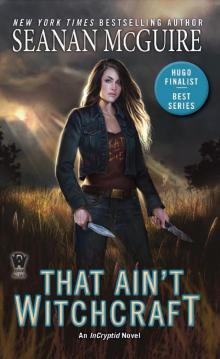 That Ain't Witchcraft (InCryptid #8)
That Ain't Witchcraft (InCryptid #8)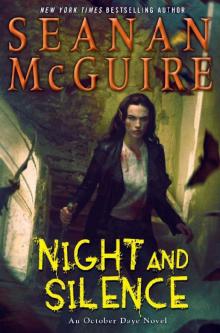 Night and Silence (October Daye)
Night and Silence (October Daye) Late Eclipses od-4
Late Eclipses od-4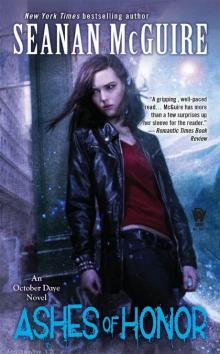 Ashes of Honor: An October Daye Novel
Ashes of Honor: An October Daye Novel Midway Relics and Dying Breeds: A Tor.Com Original
Midway Relics and Dying Breeds: A Tor.Com Original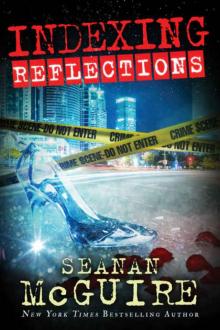 Indexing: Reflections (Kindle Serials) (Indexing Series Book 2)
Indexing: Reflections (Kindle Serials) (Indexing Series Book 2)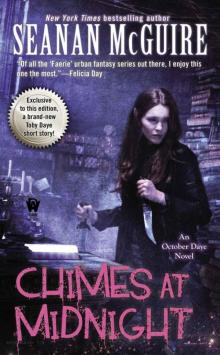 Chimes at Midnight: An October Daye Novel
Chimes at Midnight: An October Daye Novel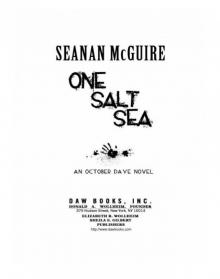 One Salt Sea: An October Daye Novel
One Salt Sea: An October Daye Novel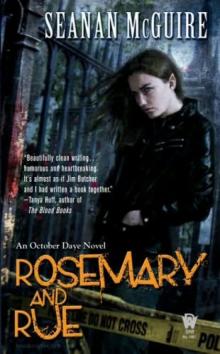 Rosemary and Rue od-1
Rosemary and Rue od-1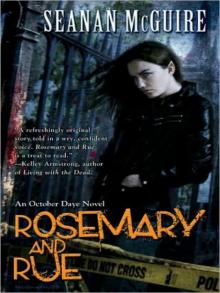 Rosemary and Rue: An October Daye Novel
Rosemary and Rue: An October Daye Novel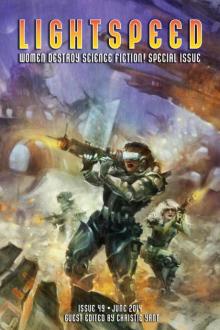 Lightspeed Magazine Issue 49
Lightspeed Magazine Issue 49 Alien Artifacts
Alien Artifacts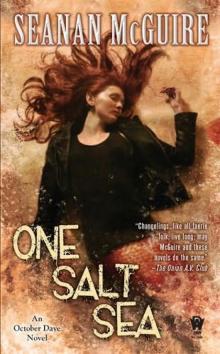 One Salt Sea od-5
One Salt Sea od-5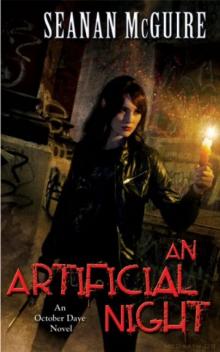 An Artificial Night od-3
An Artificial Night od-3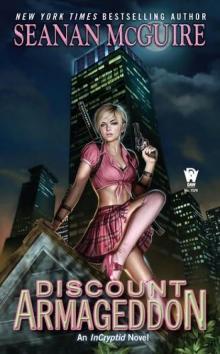 Discount Armageddon i-1
Discount Armageddon i-1